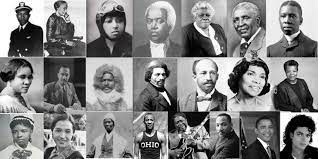Devon is deciding courses for the last year of high school. Devon’s counselor suggests a fourth year of Spanish. Colleges like to see four years of a language, intones the counselor. Devon wants to drop language to make room for three history courses. Oh, no, responds the counselor. Colleges don’t want to see students major in a subject until they are in college.
Devon, with the support of his parents, politely declines the advice of the well-meaning counselor. Devon doesn’t enjoy language, has to study an hour and a half every day just to keep up. Whereas Devon loves, loves, loves history and can’t wait to take “International Law and Human Rights,” “Black Voices in Social Movements,” and “Capitalism in America.” All of which turn out to be awesome courses.
Subsequently…
- Devon is rejected from every highly selective college to which an application is submitted. Devon is now employed part time as a taster for a sand and gravel company; Devon lives in a box under an expressway bemoaning in the occasional lucid moment how much he wishes he had listened to his counselor before attempting to rob that first liquor store.
- Devon majors in history at Bowdoin College in Brunswick, Maine, is graduated from medical school, and is now in the second year of residency at Shands, the hospital at the University of Florida where he on the way to becoming a hematologist/oncologist.
No one is more sensitive than this author to making a causal inference from correlational data. The doctors told me I had six months to live, but I ate three Milky Way bars every day and five years later, I am still going strong. Uh huh. But what about the hundred other folks with that unfortunate diagnosis who did indeed shuffle off this mortal coil in the allotted time frame their unrelenting ingestion of chocolate notwithstanding? And what about the hundred other things you ate, the medicines you took, and the treatments you received? It’s quite a leap to suggest that the Milky Way bars, delightful though they may be, were the reason you beat the mortality table.
Nor am I arguing that the above student was admitted to medical school because he ignored the advice of his counselor. Some other students may have taken three history courses and subsequently received disappointing admissions decisions. I’m merely pointing out that following your own star has its advantages because 1) well, it’s your own star and 2) wouldn’t you feel silly if instead you obeyed a counselor’s advice and ended up where you didn’t want to be anyway? Besides, it’s a good idea to be yourself; everyone else is already taken.
Considering the source is also a good plan when sifting through the boundless advice hurtling your way. Was Devon’s counselor concerned about appearing knowledgeable? Did the counselor feel that it was necessary to say something about the college admissions process? Could Devon’s counselor have had another agenda? Was the counselor representing the interests of the school–ensuring that there were enough students enrolled in Spanish IV? Were I a better fiction writer, I would have the counselor dating the part-time Spanish IV teacher and dependent on the income generated from having enough students in that class!
The advice of other parents can be particularly toxic: “Your child should take five AP classes this year” is frequently a poorly hidden declaration that “my child is taking five AP classes this year.” A child with five AP classes senior year was admitted to a highly selective college. But so was a student with two AP classes senior year. To say nothing of the scads of other students who had five AP classes as seniors who were rejected from that same highly selective school.
As always, loving parents must keep their eyes on the prize: allow your kids to be who they are, take them at their word if they prefer one subject to another, and support their choices—even if you think their decisions will lead them to living in a box under the interstate.





